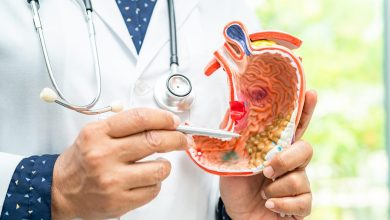
During your pregnancy, it is important to ensure that you get enough iron in your diet. Iron is a mineral that helps your body make hemoglobin, a component of red blood cells that carries oxygen to all body parts. If you don’t have enough iron, you may develop iron deficiency anemia, making you feel tired and weak. An Iron supplement can help prevent this condition.
Your doctor will likely recommend that you take them when you reach the second trimester when your body’s need for iron increases. You may need to take them for the rest of your pregnancy. Some conscious people are vegan or eat less meat, so taking a Vegan iron supplement is also a good option for you.
Why You Need Iron During Pregnancy
Pregnancy is a time of great change in a woman’s body. One of the most important changes is the increase in blood volume. This increase can lead to iron deficiency anemia, which can harm both the mother and the developing baby.
- Symptoms of iron deficiency anemia include fatigue, weakness, pale skin, and shortness of breath. If left untreated, it can lead to severe complications such as preterm labor, low birth weight, and postpartum hemorrhage.
Pregnant women need about 27 milligrams of iron per day, more than twice that of non-pregnant women. The best way to get enough iron is to eat an iron-rich diet, such as lean red meat, poultry, seafood, beans, lentils, spinach, and iron-fortified cereals. Some women may also need to take an iron supplement.
If you are pregnant or thinking about becoming pregnant, talk to your healthcare provider about whether you need to take an iron supplement.
Benefits of Iron Supplementation During Pregnancy
Iron is an essential mineral that plays a critical role in developing the fetal brain and nervous system. Additionally, iron supplementation has been shown to improve maternal mental health and cognitive function.
Iron supplementations are most commonly recommended for pregnant women who have low levels of iron in their blood. However, even women who do not have anemia may benefit from iron supplementation.
Some of the benefits of iron supplementation during pregnancy include the following:
- Improved maternal mental health and cognitive function
- Reduced risk of preterm birth and low birth weight
- Reduced risk of neonatal mortality
- Reduced risk of iron deficiency anemia in the mother
- Improved maternal and infant bonding
Iron supplementation is generally safe for both mother and baby. However, some women may experience side effects such as constipation, diarrhea, nausea, or vomiting. Contact your healthcare provider if you experience any of these side effects.
Ways to Prevent Anemia in Pregnancy
Pregnancy is a beautiful and special time for any woman, but it can also come with some challenges. There are several things that you can do to help prevent anemia during pregnancy.
1. Get enough iron in your diet.
Good sources of iron include lean red meat, poultry, fish, beans, and spinach. You may also need to take a supplement if you are not getting enough iron from your diet alone. Your doctor can help you determine if you need a supplement and, if so, how much.
2. Get enough folic acid.
Folic acid is a nutrient found in leafy green vegetables, legumes, nuts, and fortified foods. Pregnant women need to get enough folic acid to help prevent certain congenital disabilities.
3. Consider taking a probiotic supplement.
Probiotics are live bacteria that are good for your gut health. Some studies have shown that they can help prevent anemia during pregnancy.
You can prevent anemia during pregnancy by getting enough iron in your diet, taking a supplement if needed, and getting enough folic acid. You may also want to consider taking a probiotic supplement. You can also talk to your doctor to find the best way to prevent anemia during pregnancy for you.



